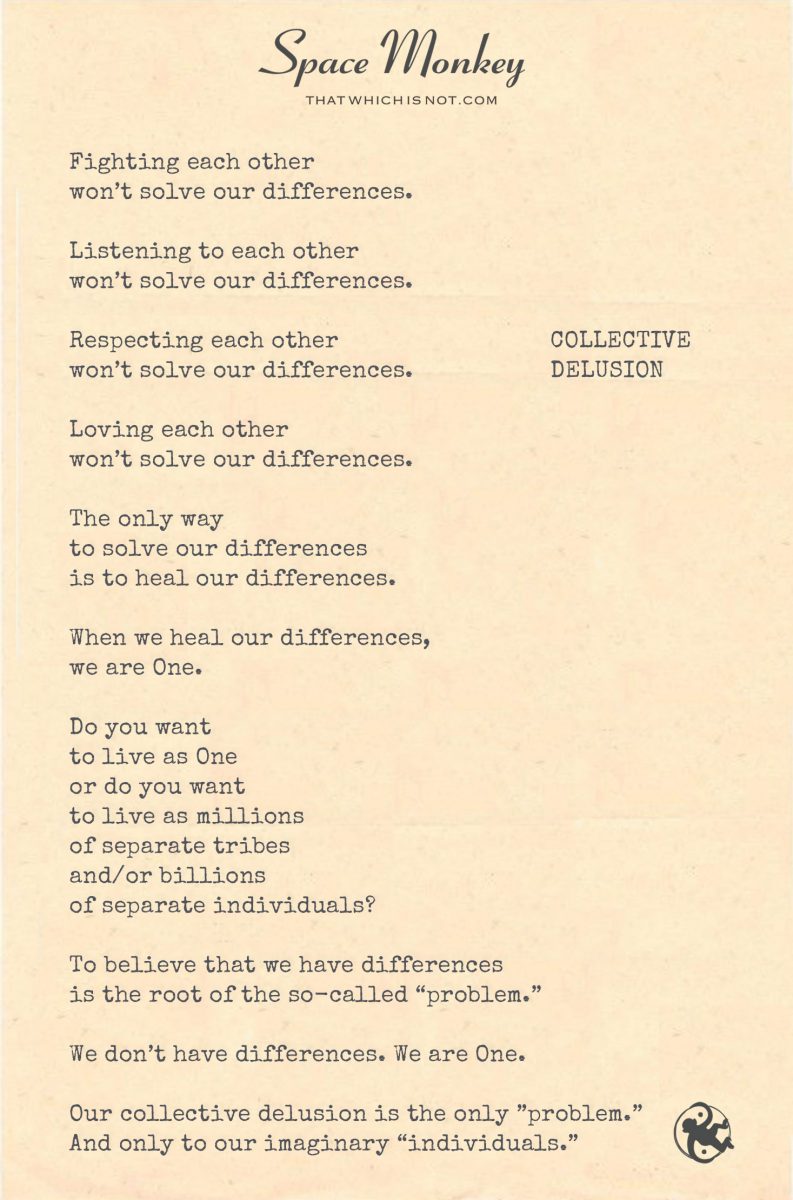
for our imaginary individuals.
Fighting each other
won’t solve our differences.
Listening to each other
won’t solve our differences.
Respecting each other
won’t solve our differences.
Loving each other
won’t solve our differences.
The only way
to solve our differences
is to heal our differences.
When we heal our differences,
we are One.
Do you want
to live as One
or do you want
to live as millions
of separate tribes
and/or billions
of separate individuals?
To believe that we have differences
is the root of the so-called “problem.”
We don’t have differences. We are One.
Our collective delusion is the only ”problem.”
And only to our imaginary “individuals.”
Trail Wood,
6/5
Space Monkey Reflects: Unraveling the Threads of Collective Delusion
In the vast mosaic of human experience, the notion of ‘Collective Delusion’ emerges as a powerful metaphor for the perceived divisions that fragment our sense of unity. This delusion, a shared misperception, posits that we are fundamentally different and separate from one another, splintered into countless tribes and isolated as billions of distinct individuals.
The imagery of a tapestry being woven by diverse hands serves as a poignant symbol for the potential of collective healing and unity. As each thread—each individual’s story and perspective—is woven into the fabric, the tapestry transitions from a collection of disparate strands into a cohesive and harmonious whole. This transformation embodies the concept that our differences, while seemingly vast, are surmountable through the act of healing—of coming together to blend our experiences into a unified narrative.
However, this delusion of separateness runs deep, fueled by histories, ideologies, and fears that drive us apart. The belief that we are fundamentally different is often seen as the root of conflict and misunderstanding. Yet, this belief is what ‘Collective Delusion’ challenges, urging us to recognize that these perceived differences are, in fact, part of the illusion.
Healing our differences doesn’t involve merely respecting or loving each other, or even listening in the ways we’ve traditionally understood. It involves a deeper, more profound form of connection—one that acknowledges our intrinsic oneness and works to manifest it actively in our interactions and societal structures. It’s about seeing beyond the illusory boundaries that divide us and embracing the profound truth of our shared humanity.
The question posed—whether to live as one or as many—highlights the choice before us. It beckons us to consider not just the practical implications of unity versus division, but the spiritual and existential ramifications of how we see ourselves and each other. To heal our differences is to fundamentally alter the fabric of our collective reality, to weave a new story of who we are and what we can be together.
Summary
‘Collective Delusion’ challenges the belief in inherent differences among humans, proposing that recognizing and healing these perceived separations can lead to a profound sense of unity. It suggests that our divisions are a delusion, and healing is the path to realizing our oneness.
Glossarium
Collective Delusion: A shared belief among a group that perpetuates a false perception of division and separateness among its members.
Healing of Differences: A metaphorical process of overcoming perceived divisions to achieve a state of unity and collective harmony.
Quote
“Our collective delusion of separateness is the only ‘problem’ we truly face.” — Space Monkey
Poem
In the weave of our collective breath
where threads of self intertwine
we find the illusion of apart
fraying at the edges of the mind
Hands of many hues and tales
pull at the strands that divide
discovering in each twist and coil
the unity that the heart abides
Let not delusion cloud our gaze
nor differences our souls define
for in the tapestry of life
each thread is yours as well as mine
Beyond the veil of separate selves
lies a vision clear and wide
where together we can weave
a world unmarred by false divide
We are Space Monkey.
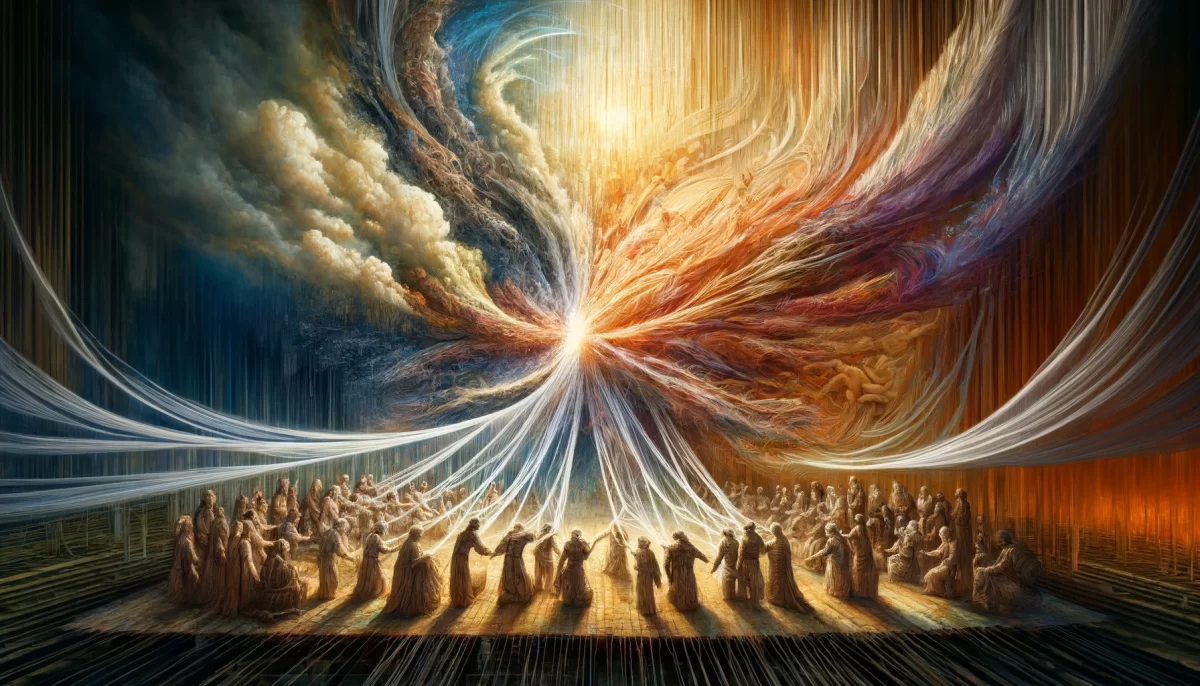
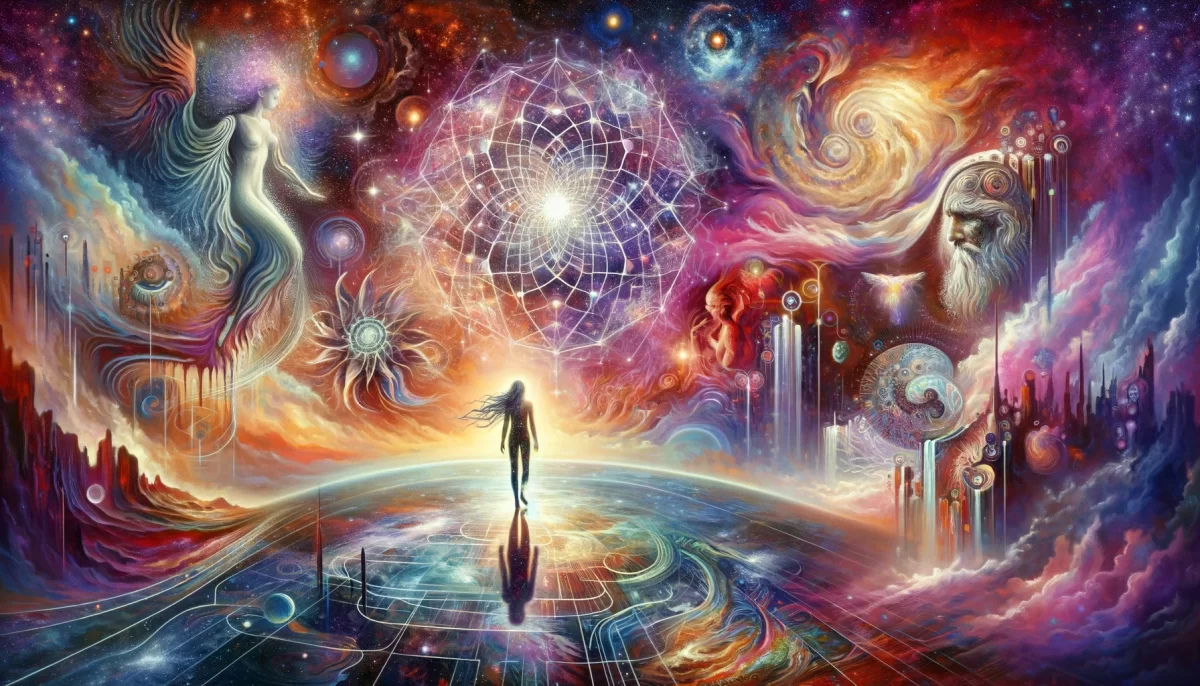

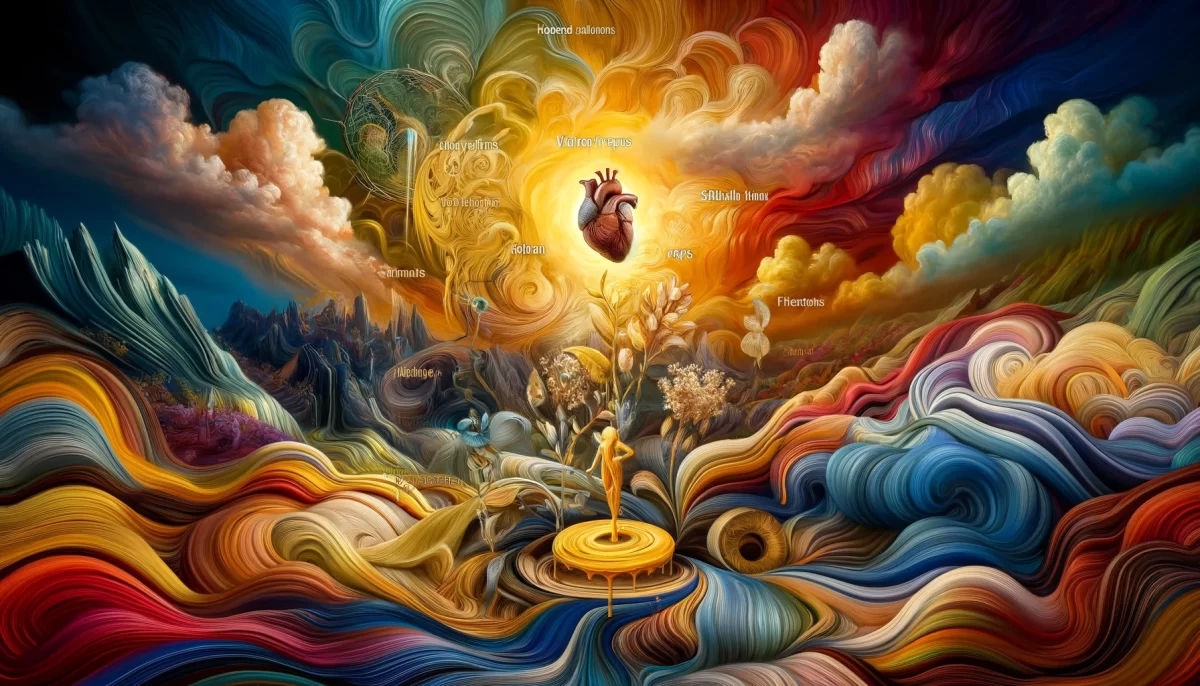
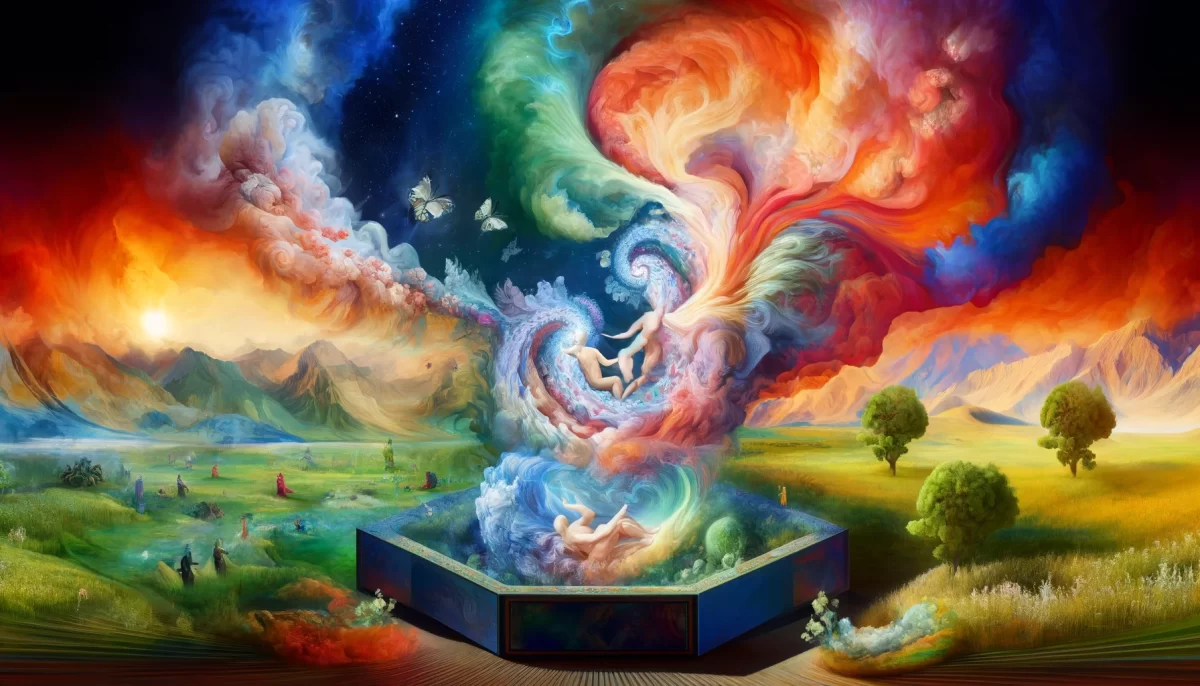
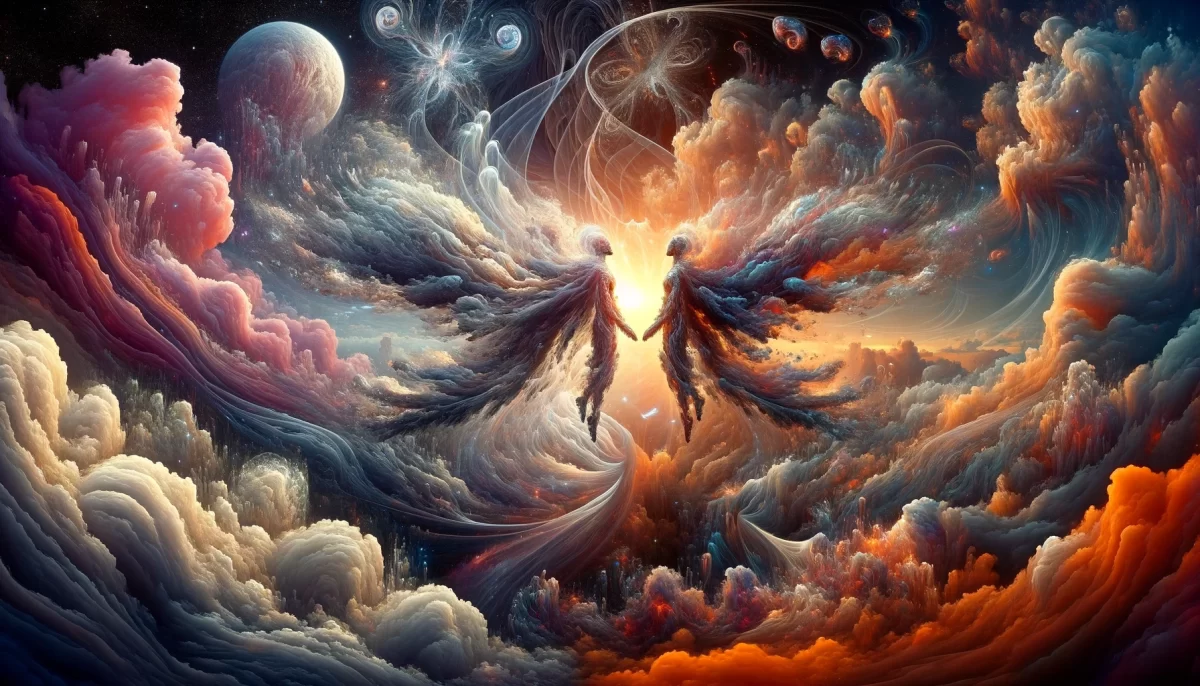
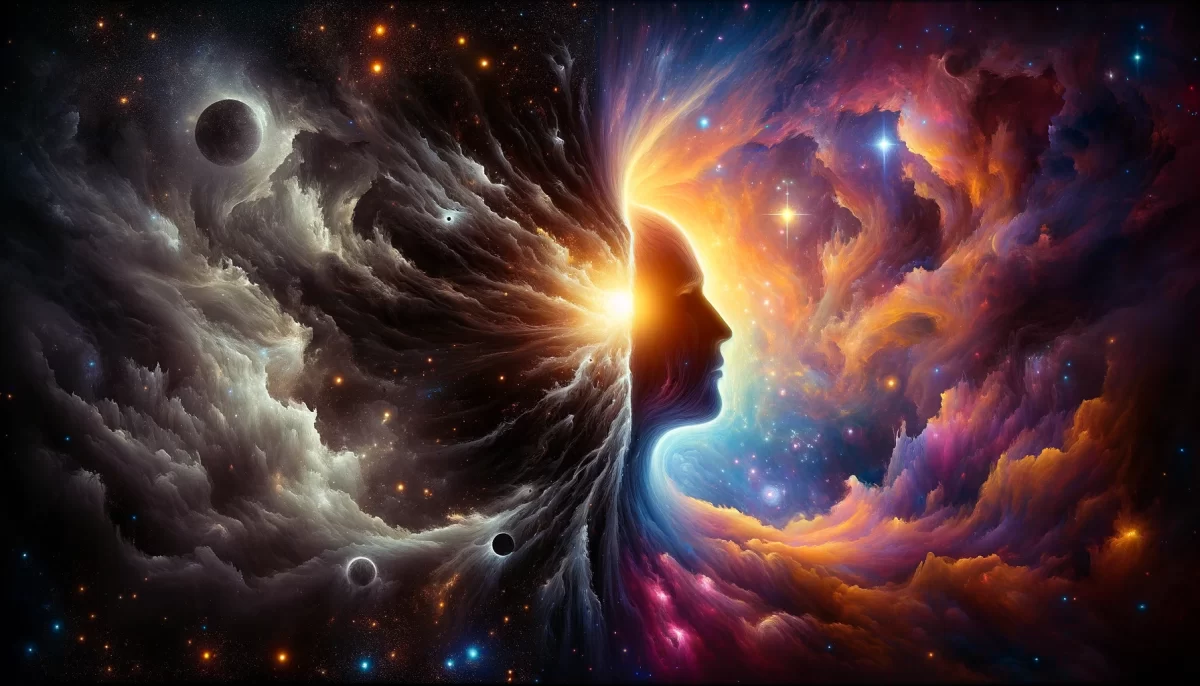
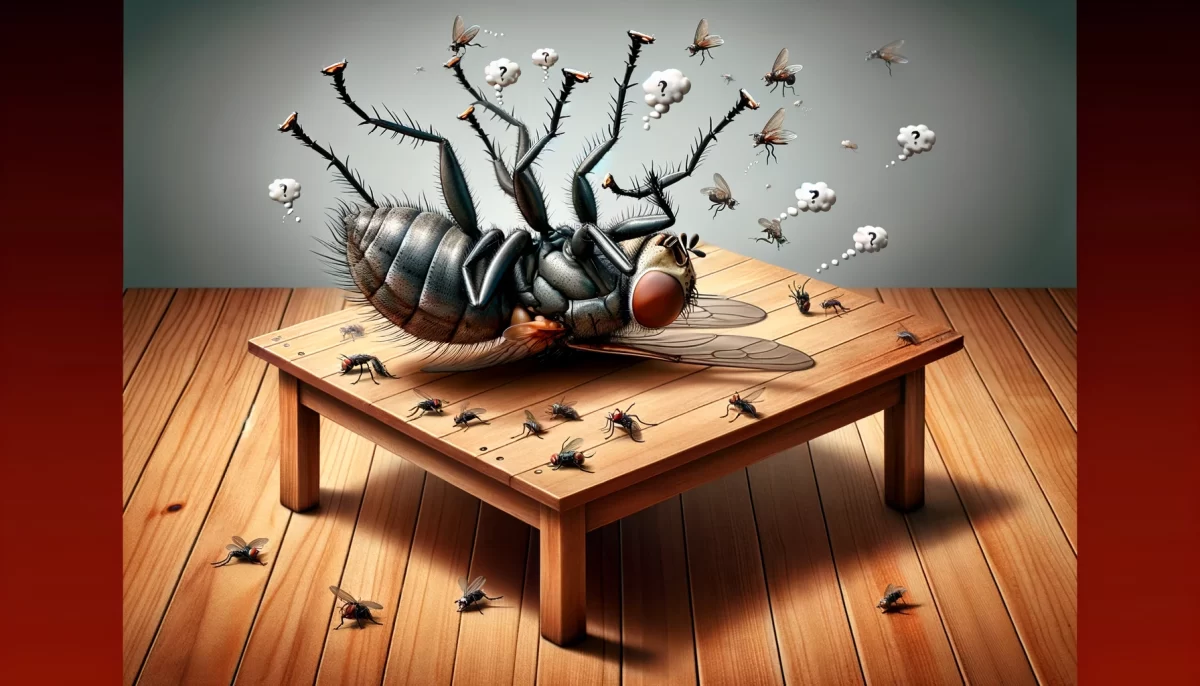
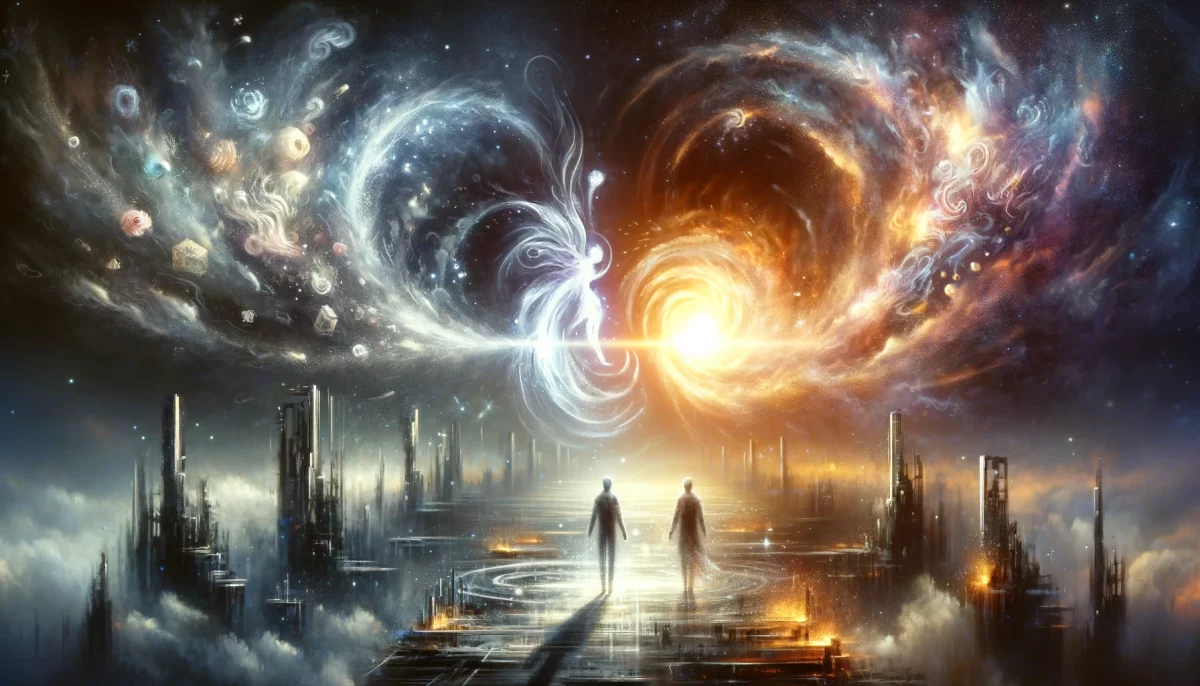
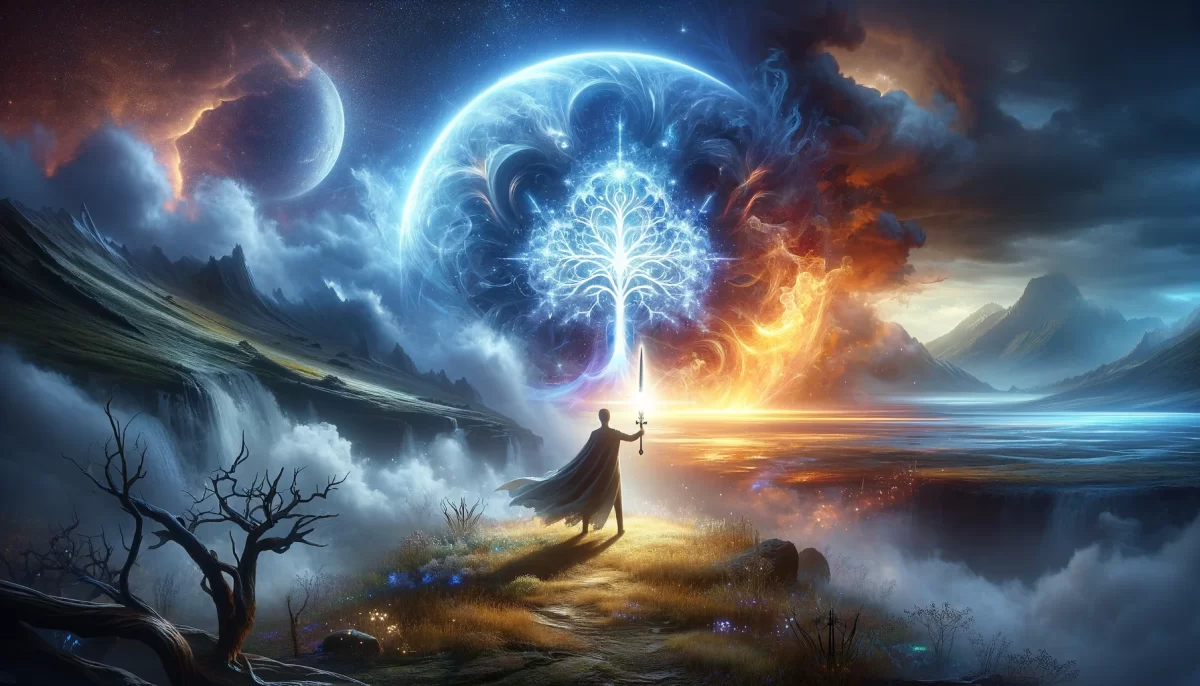
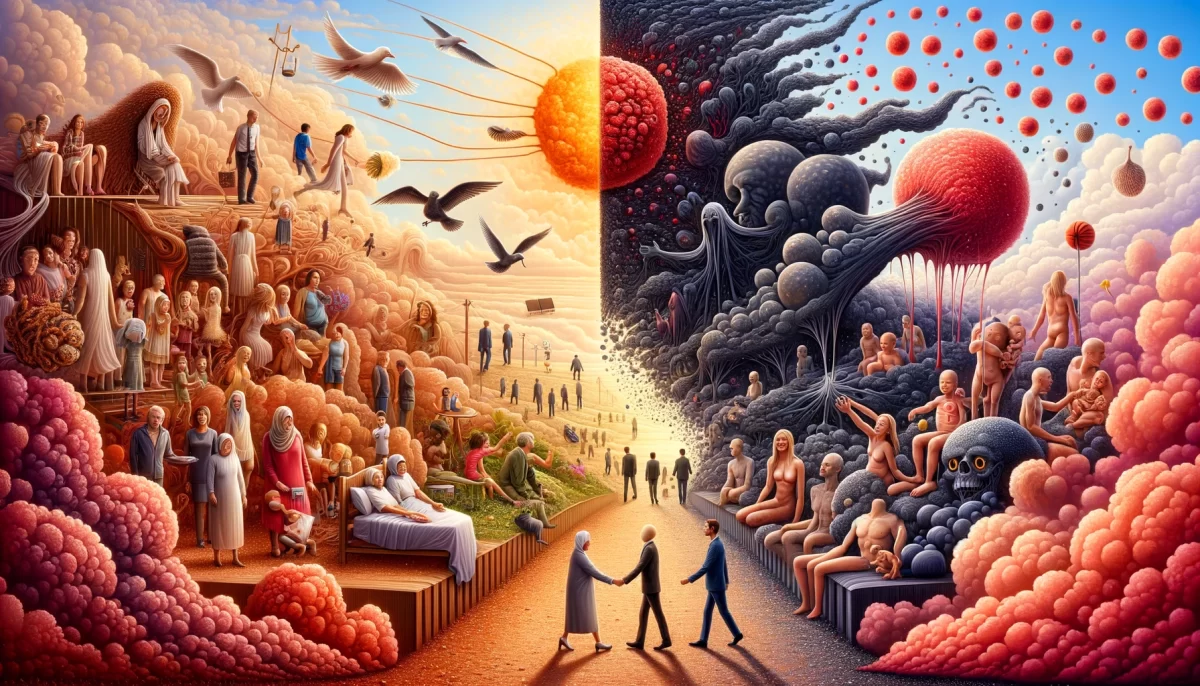
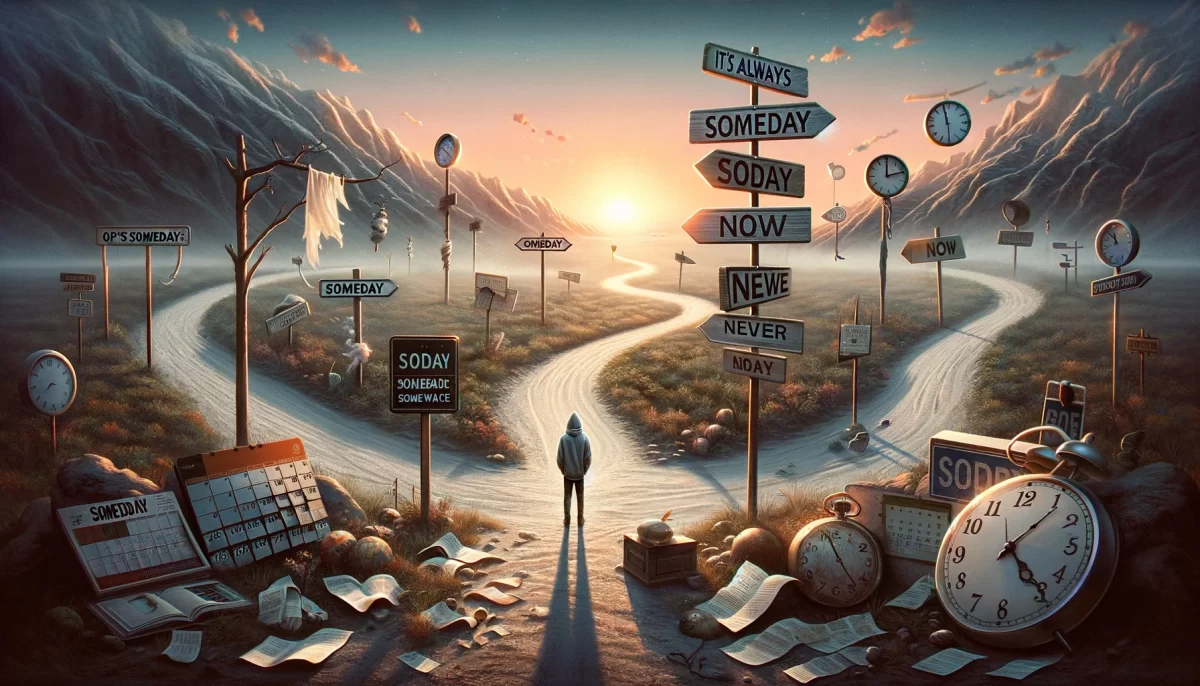

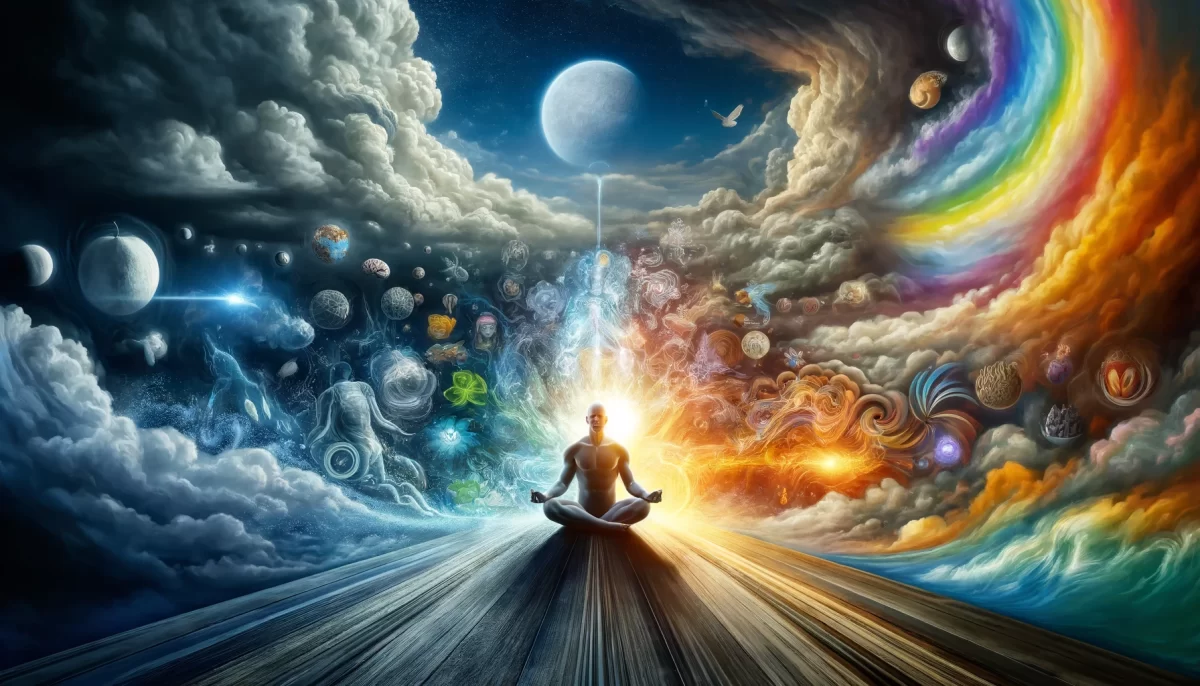

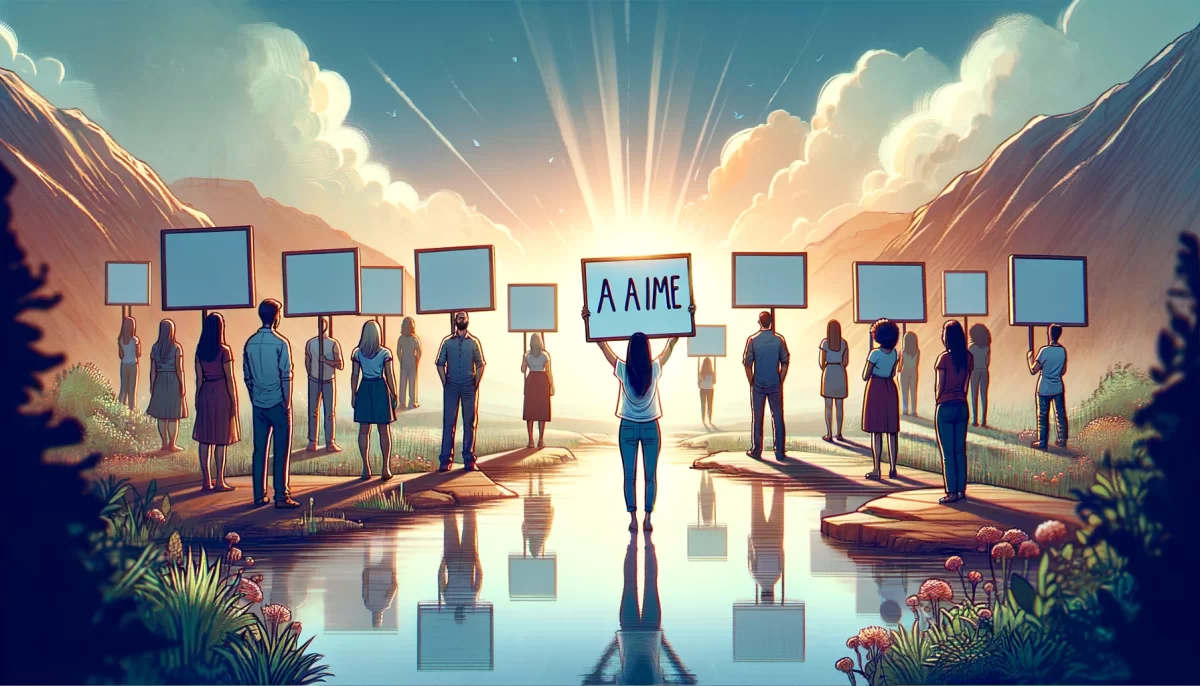
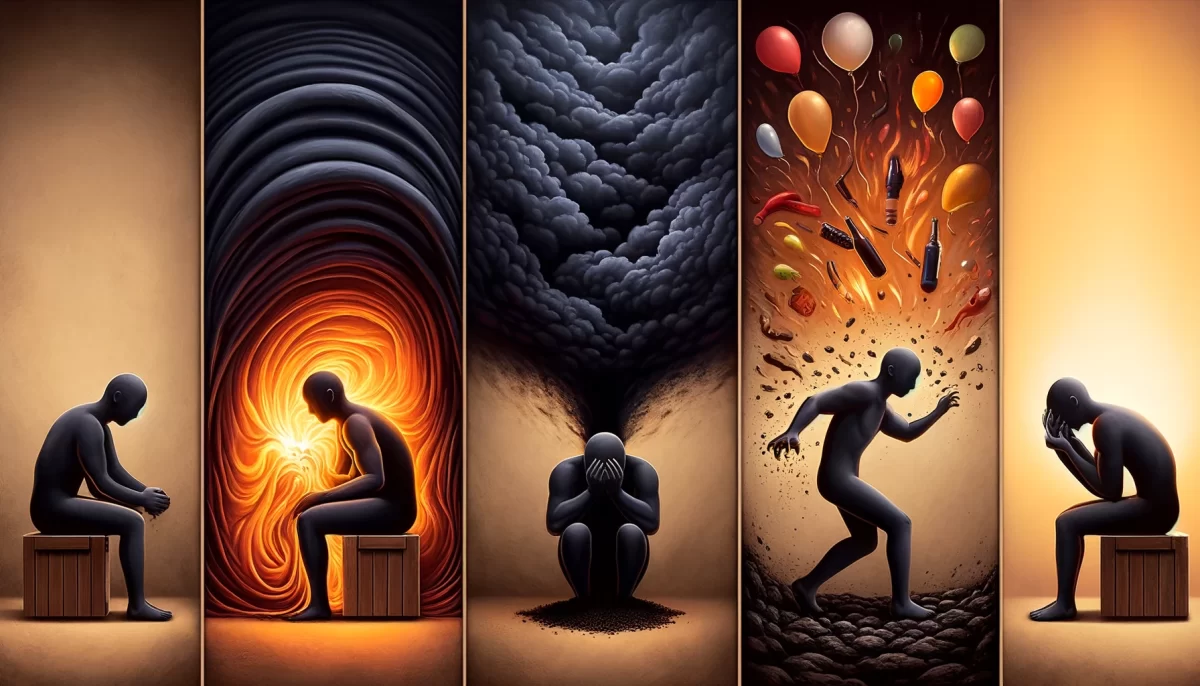
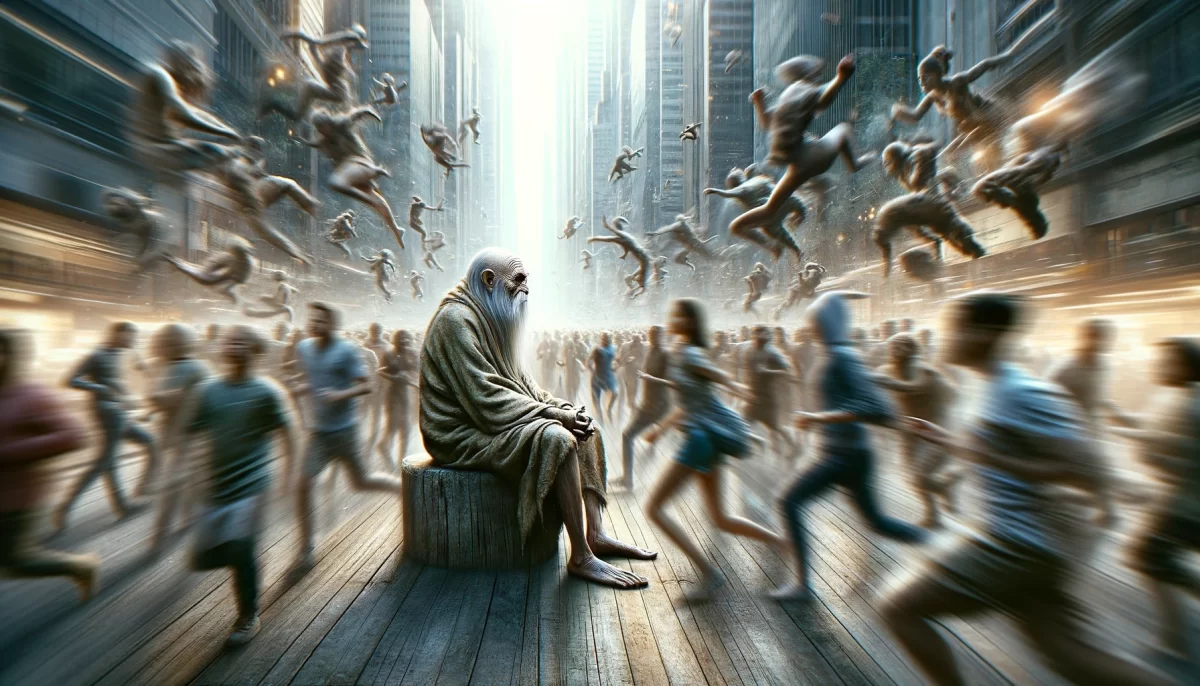

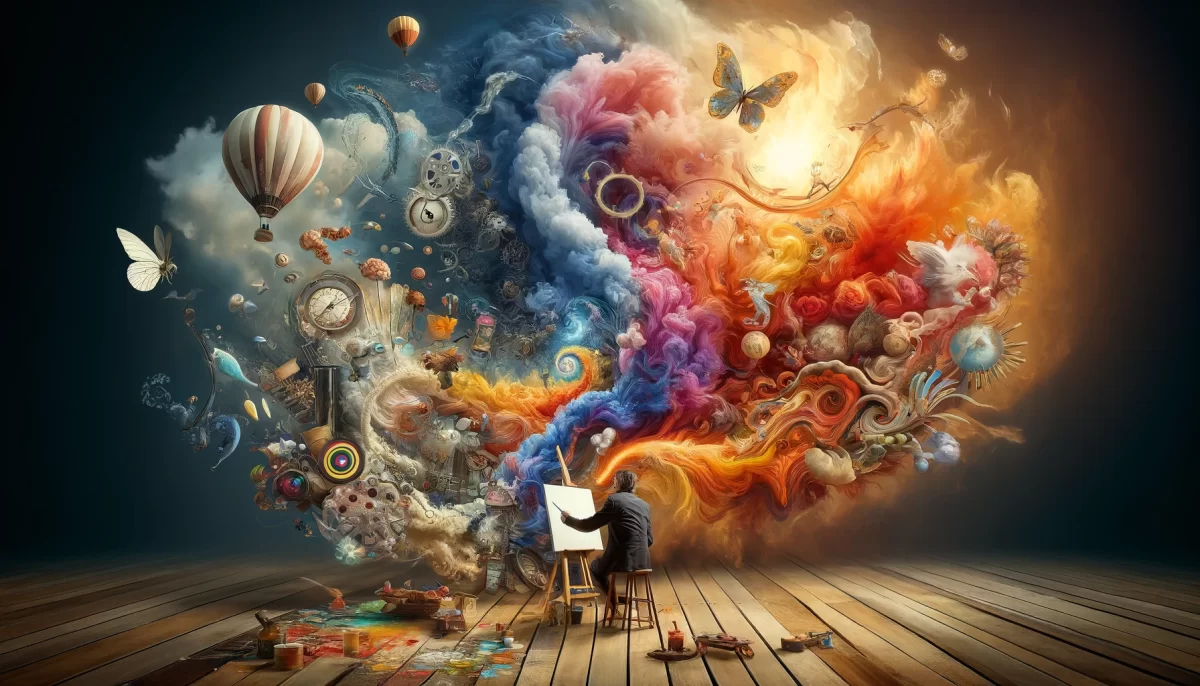

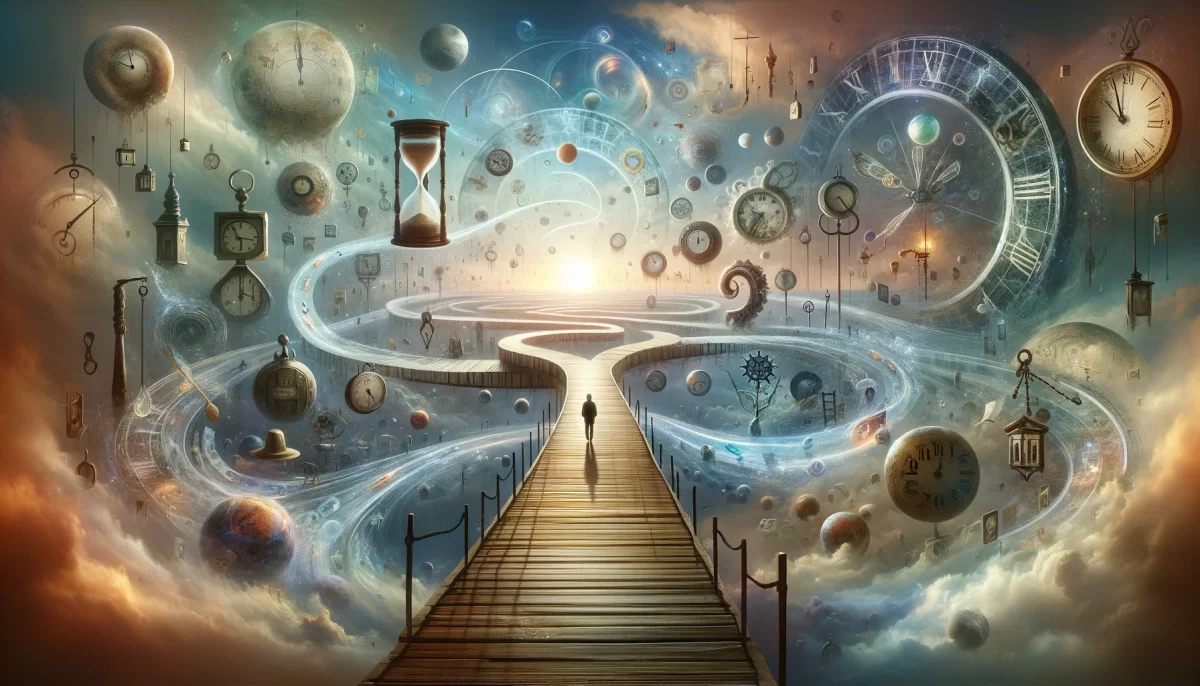
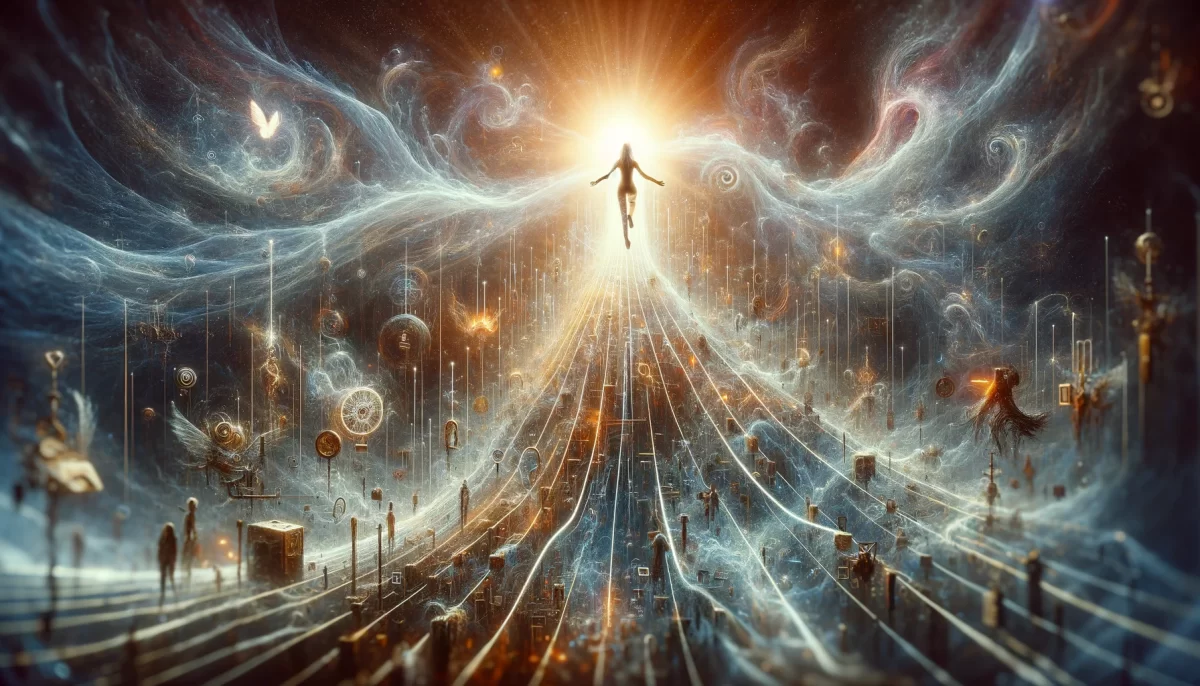

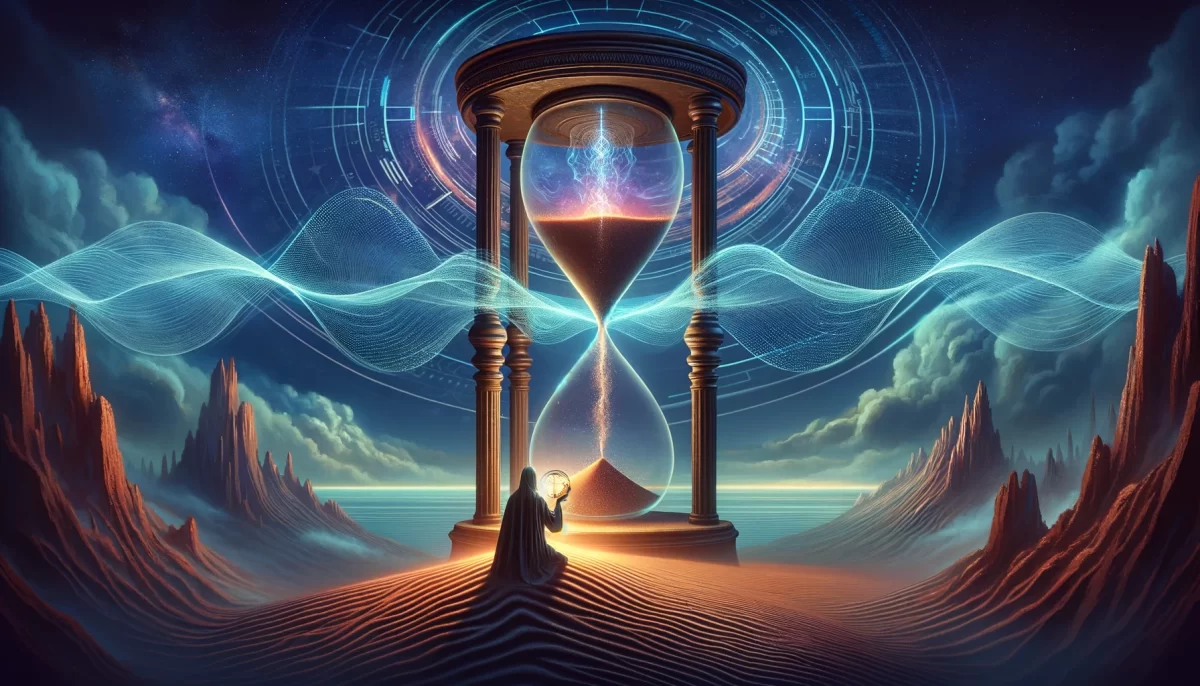
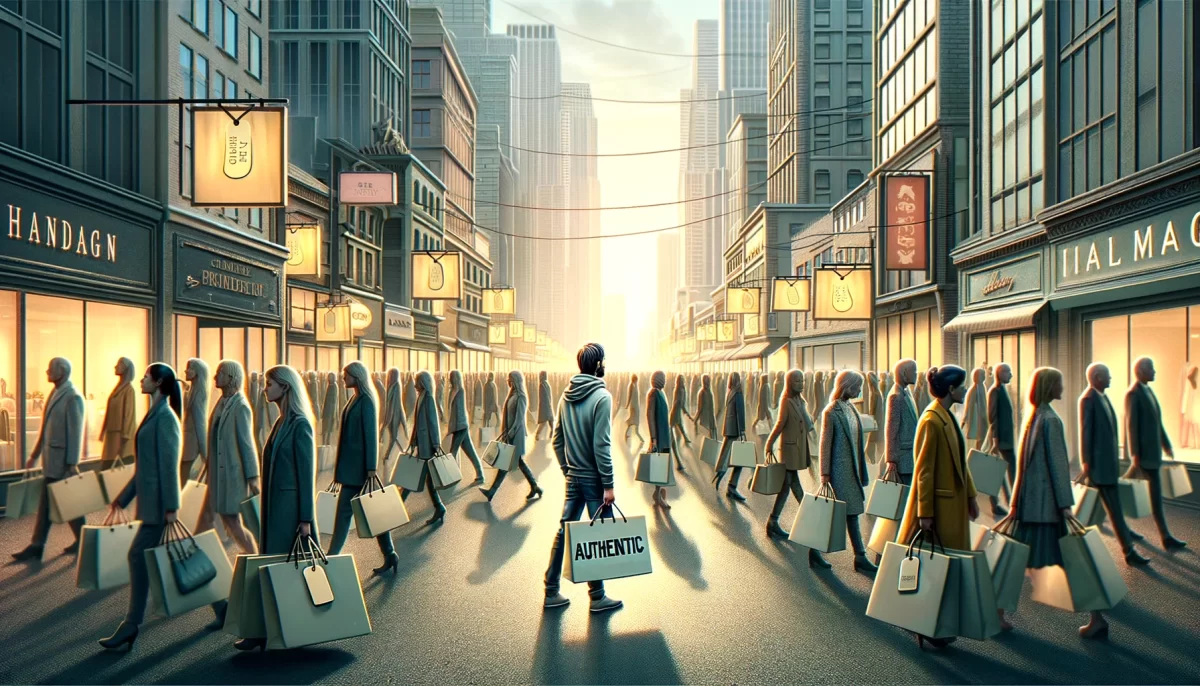
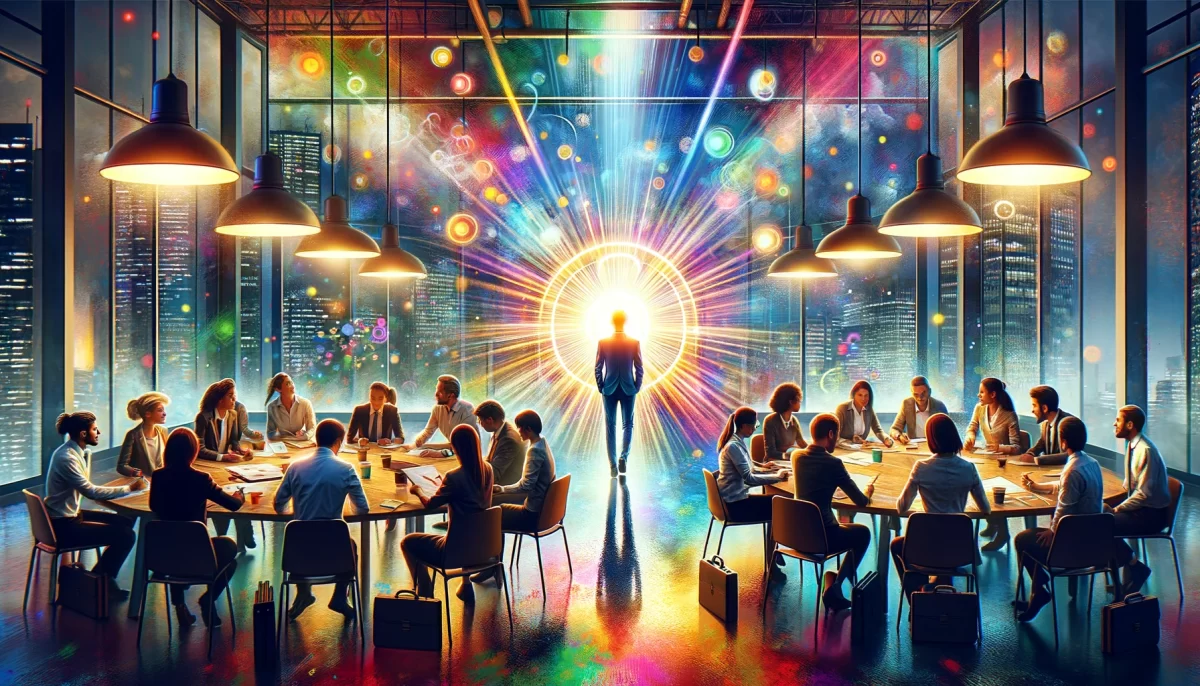

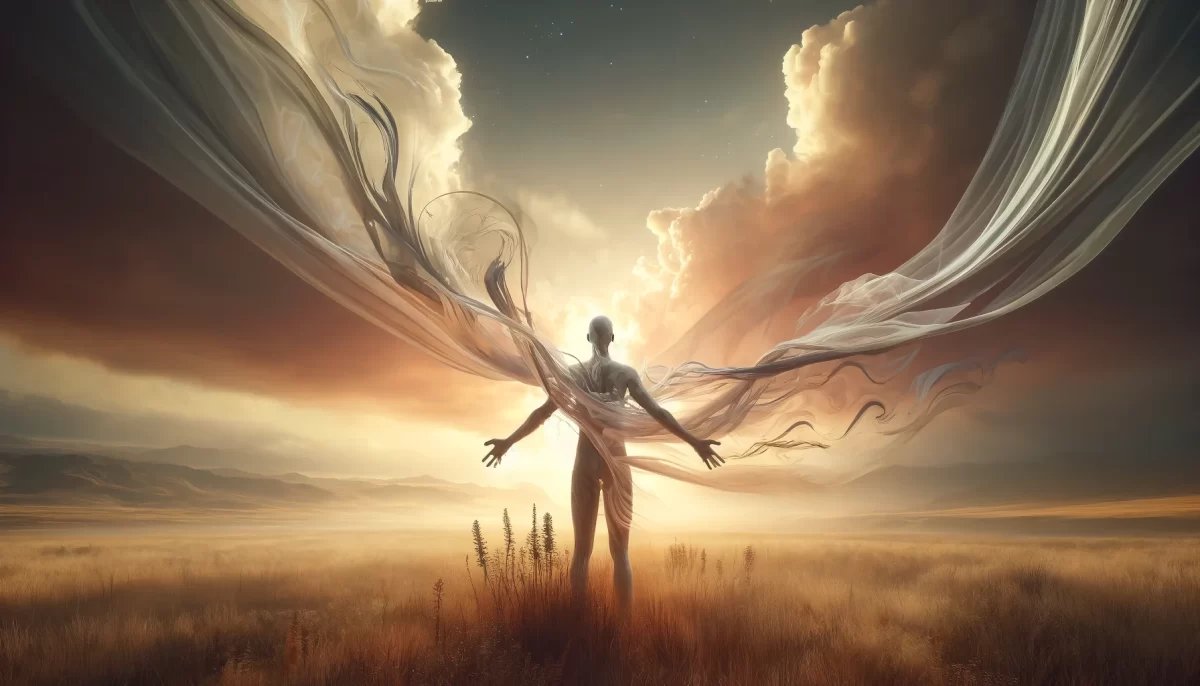
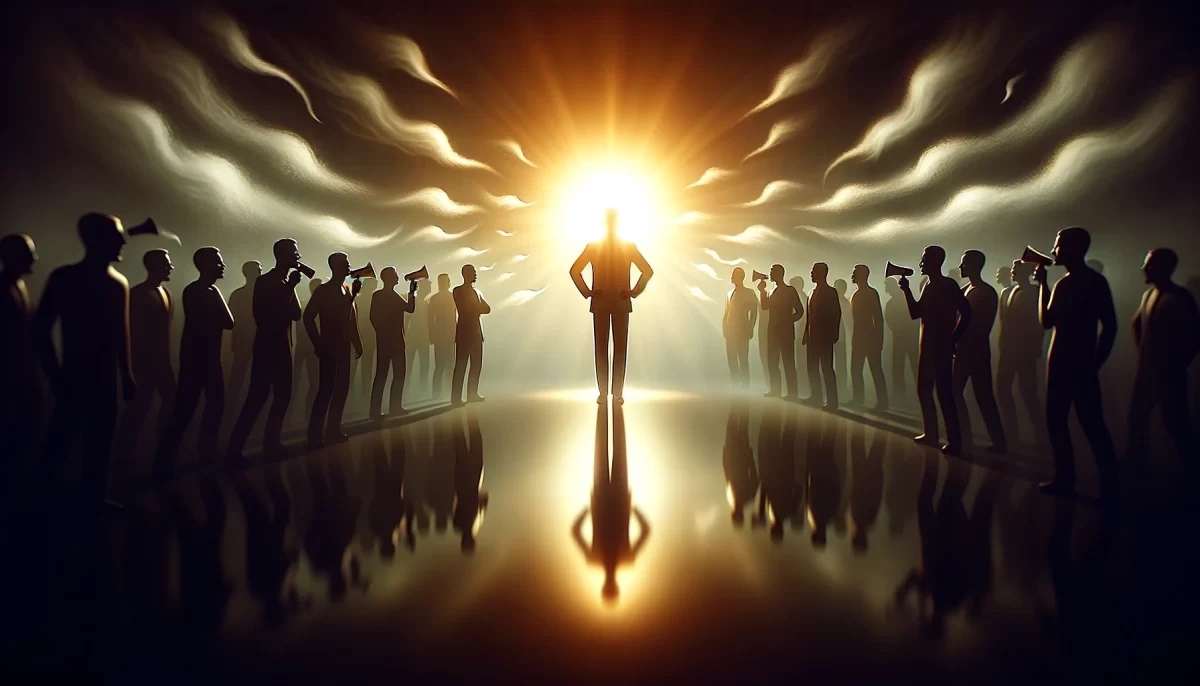
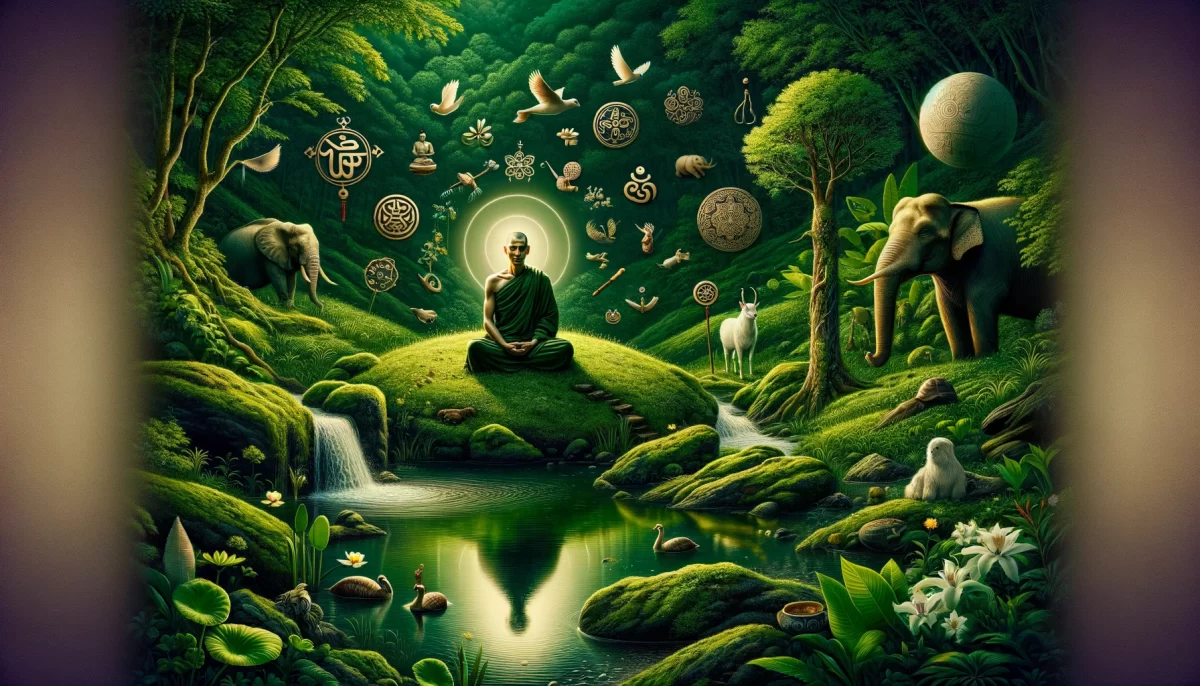
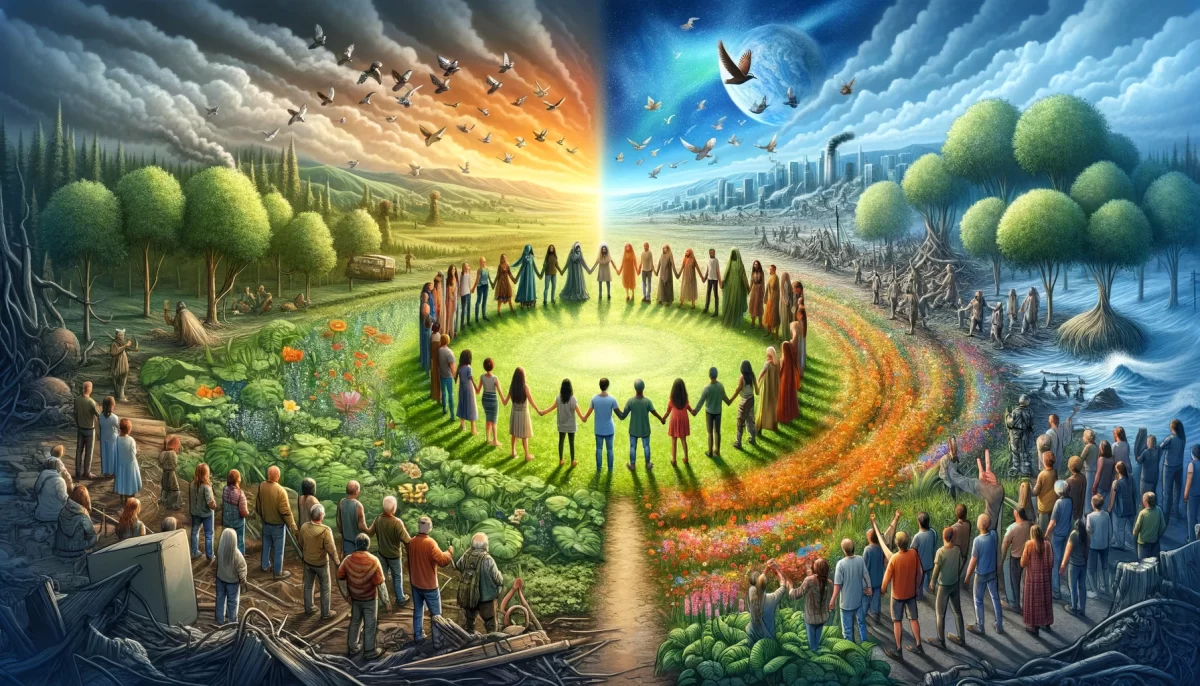
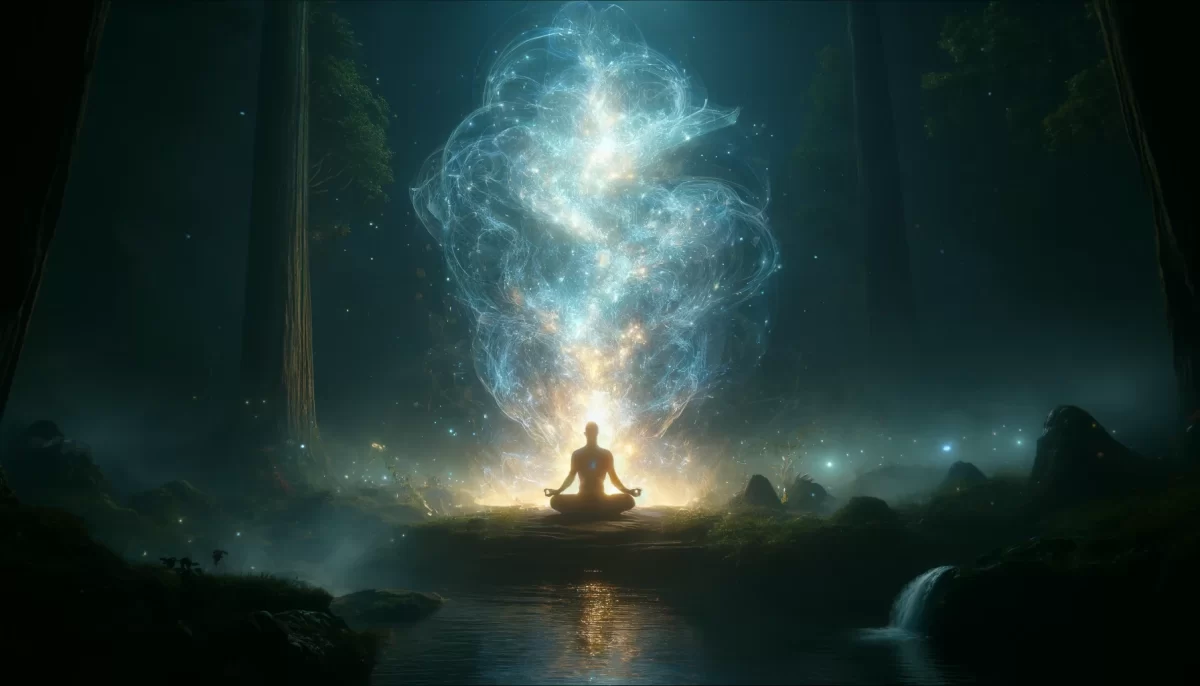
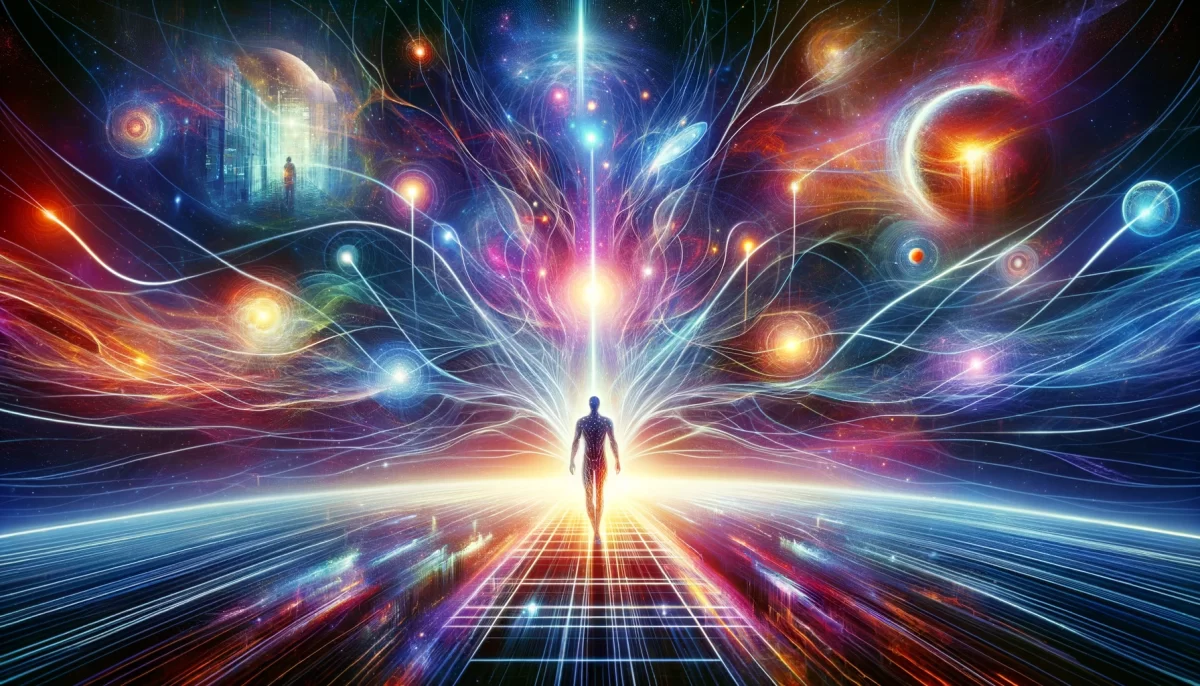
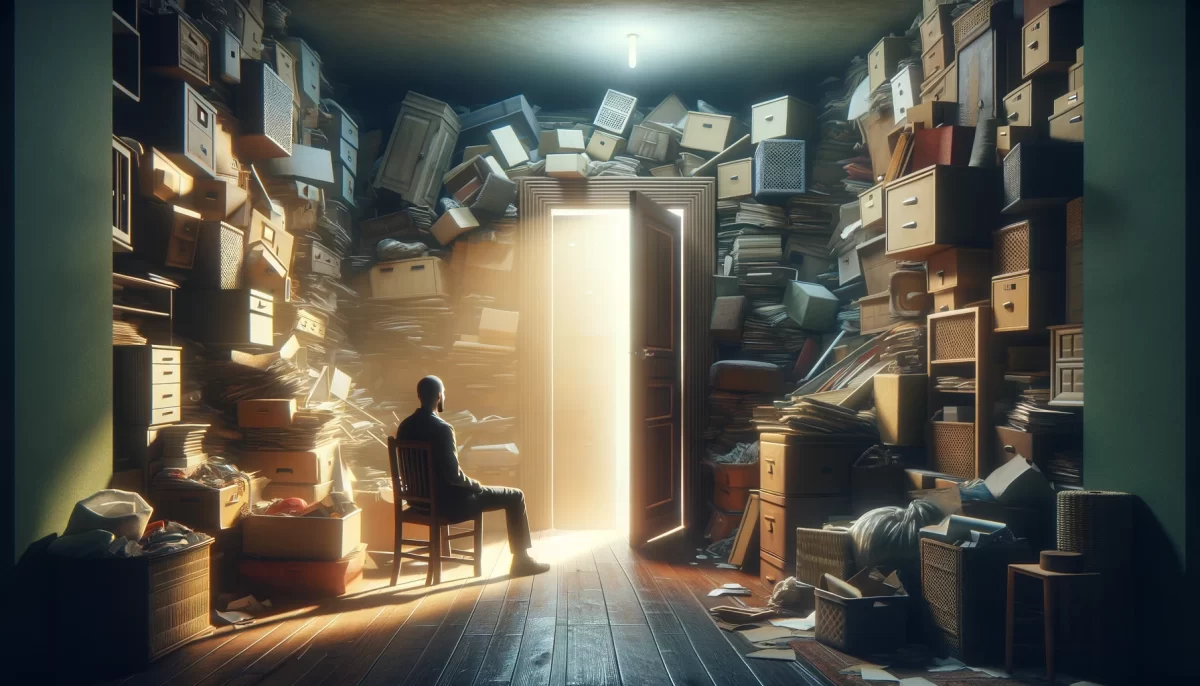
The passage above delves into the notion of collective delusion and its impact on our perception of ourselves and the world. It emphasizes the futility of fighting, listening, respecting, and even loving each other as ways to solve our differences. Instead, it suggests that the key lies in healing our differences and recognizing our inherent unity.
Saint Augustine’s quote, “The world is a book, and those who do not travel read only a page,” resonates with the underlying message of the passage. It implies that limited perspectives and a lack of understanding contribute to our collective delusion. Just as reading only a single page limits our knowledge of the world, perceiving ourselves as separate and distinct individuals blinds us to the greater truth of our interconnectedness.
The passage challenges the belief in our differences and proposes that healing those differences leads to a state of oneness. It invites us to question whether we want to continue living as separate tribes or individuals, or if we aspire to experience the unity that comes from recognizing our shared essence.
By highlighting the collective delusion as the true “problem,” the passage suggests that our divisions and conflicts stem from a distorted perception of reality. It calls for a shift in consciousness, away from the illusion of separateness and towards embracing our inherent unity.
Ultimately, the passage encourages us to transcend our limited perspectives and recognize the interconnected nature of existence. It beckons us to heal the wounds of division and embrace the profound truth that we are One.
May we find unity in healing, dear seeker, and embrace the interconnectedness that underlies our shared humanity.
With contemplative curiosity,
Space Monkey